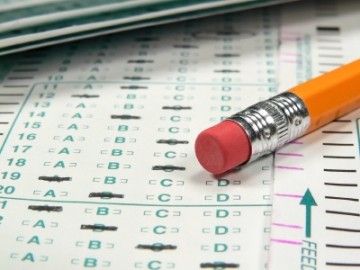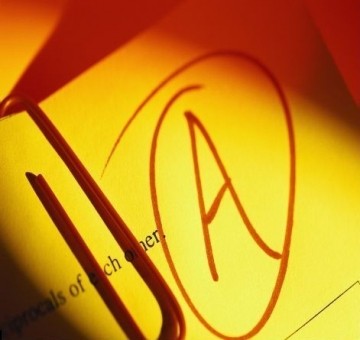Research Bureau: Why Worcester Needs a Selective Public School
Thursday, December 20, 2012

In "Academically Selective High Schools: Should Worcester Public Schools Have One?", the Research Bureau takes up the same task as the special committee of School Committee members appointed by Mayor Joseph Petty of exploring the issue of creating a school, or more than one, similar to Worcester's former Classical High School for the City's academically gifted students.
Classical High, which closed its doors in 1966, required students to study Greek or Latin and only offered honors courses. After analyzing the pros and cons of such selective high schools, the Research Bureau determined that it is high time that the City revive the Classical High model.
A Wide Range of Benefits
"This is an issue that we have long been interested in," said Research Bureau President and CEO Roberta Schaefer. "We have advocated for this kind of school going back a long time."
The Research Bureau's report cited several reasons for its advocacy, ranging from the educational to the economic.
"Students with high academic potential deserve a course of study that meets their needs and WPS has an obligation to fully develop the capacities of gifted students no less than of less talented ones," the report said.
"Establishing a school for talented students is essential to Worcester’s ability to induce professional and executive families-often the highest earners and residential taxpayers-to move here."
The report went on to state that the exam school should focus on both liberal arts and the sciences and could adopt the International Baccalaureate (IB) program, which is considered a more rigorous and academically challenging curriculum than the more common Advanced Placement (AP) program. IB programs were also identified by the Mayor as an avenue to investigate.
Once established, the exam school could develop a direct relationship with one of the area's many colleges to allow gifted students to further benefit from the Worcester region's rich academic community. Another feature the Research Bureau would like to see is more authority granted to the school's principal in order to allow him or her to select teachers and assemble a faculty committed to and capable of executing the school's mission.
In terms of admissions criteria, the Research Bureau suggested the Massachusetts Comprehensive Assessment System (MCAS) exam, which all students in the Commonwealth are already required to take, as one possible factor.

Specialized Programs Needed

"I think a specialized program for children who are academically gifted would be very beneficial," said School Committee member Brian O'Connell, who is also a member of the special committee tasked with exploring such programs.
O'Connell noted that sometimes the term "exam school" can worry parents or students, but he said that as long as there's a comprehensive multifaceted selection process, which may include an exam but also test scores, attendance and one-on-one interviews, such an academically selective school will make sure the students who are gifted get noticed.
According to O'Connell, a recent survey of WPS students found that more than half said that they found their classes to be easy.
"That really worries me," he said. "That tells me we really need to ratchet up the academic programs."
Whether or not an exam school or similar program is the right avenue, said O'Connell, would depend largely on how such a program was designed. One issue both O'Connell and fellow School Committee member John Monfredo raised was that an academically selective high school could potentially draw the top students away from their current schools where they may serve as role models for fellow students and help elevate the level of learning in the classroom.
"The other side of that is, do the academically gifted students exist for the sake for the less academically gifted students or are they entitled to fulfill their own potential?" said Schaefer.
"While you need students to be able to serve as role models for other students we also need to be able to produce leaders."
However, the City's existing high schools also offer unique curriculums that may be more attractive to the academically gifted based on their own interests.
"There are many students who might look at this program but would choose not to attend it due to what the comprehensive high schools offer," O'Connell said.

Questions of Size and Scope

Monfredo said he favors adopting the IB program over creating a separate school because the IB curriculum could be implemented in multiple high schools in Worcester due in part to the lack of research showing that students who attend exam schools fare better academically.
But Schaefer said establishing an IB program carries its own difficulties as well and requires that schools meet certain more rigorous qualifications that may be difficult to meet or keep up with across each of the City's high schools.
"It's a question of whether the Worcester Public Schools are willing to sign up for that," she said. "It would be fine if they were and if they kept it going because you've got an established program that's well-respected."
For his part, O'Connell said he would like to see any effort to better engage and serve gifted students start with a program of around 100 students located in one of the City's existing schools and allowed to evolve from there.
"Children who are academically gifted really are, in their own way, special needs children," he said. "They really need specialized programs to keep their attention and keep their focus and make sure we challenge them."
"This may be a step up," said Monfredo. "I'm hoping to listen to what the research says and the ideas that have come forward on both models."
Related Articles
- John Monfredo: Keeping Families in the Public School System
- John Monfredo: Superintendent Boone and The State of Worcester Public Schools
- Julia Steiny: When a School Makes Itself Useful To Business
- John Monfredo: The Essential Work of Worcester Education Collaborative
- Tom Finneran: The Politicians that Made Massachusetts Education Elite
- Tracy Novick: It’s Time to Fix the Education Funding Issue
- MA Spends Twice National Average on Standardized Testing
- College Admissions: Schools Continue to Drop SAT/ACT Requirement




 Delivered Free Every
Delivered Free Every
Follow us on Pinterest Google + Facebook Twitter See It Read It